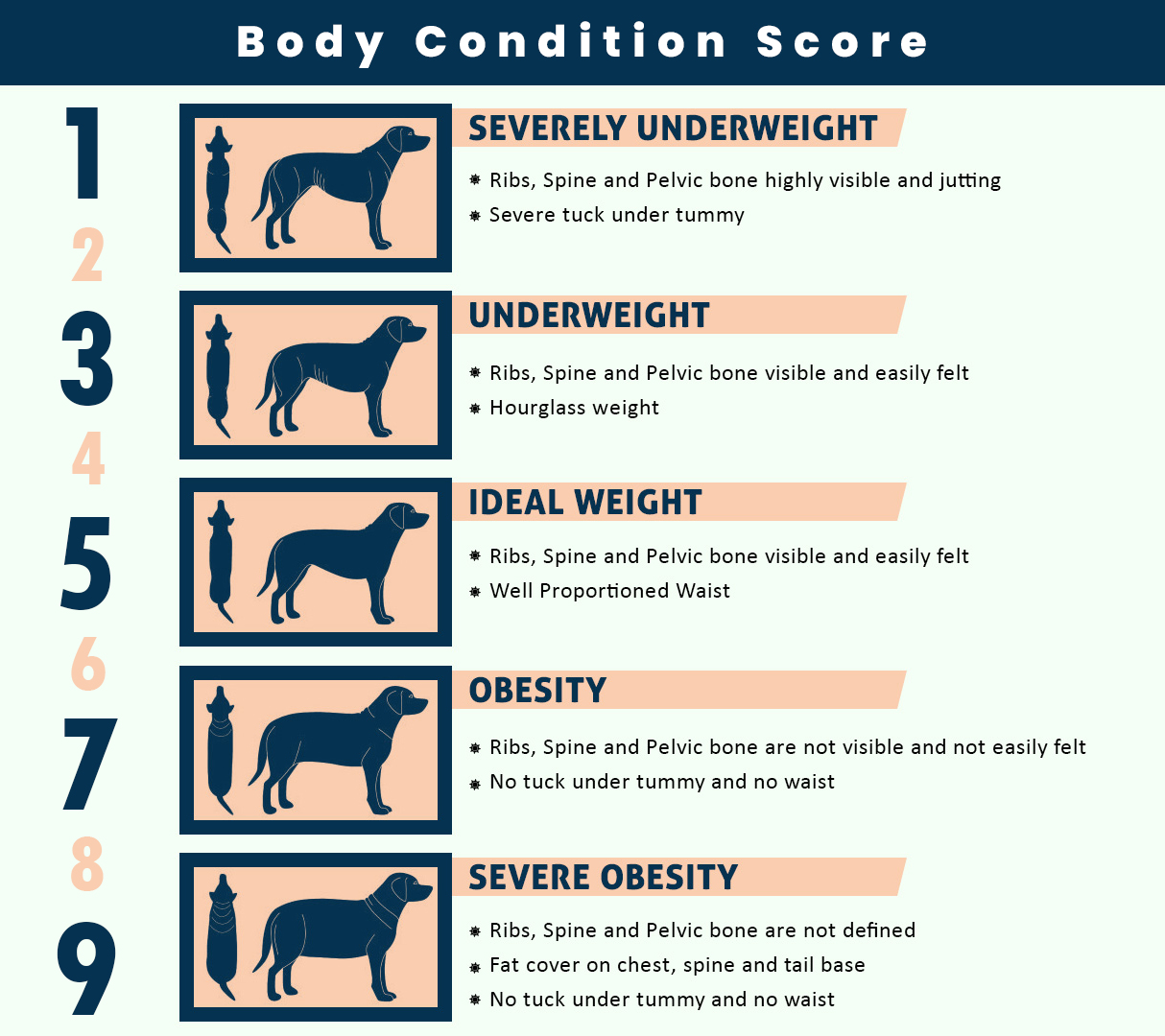Does your pet get tired easily during walks or playtime?
Is their waistline disappearing under layers of fat?
Is he panting more than usual these days?
If yes, this may be a sign that your dog is overweight.
Obesity is a serious problem in pets, as it is in humans. The extra layers of fat on your pet's body can become a cozy blanket for many health problems, such as diabetes, joint problems, respiratory issues, and whatnot. Like humans, pets too need to maintain a healthy weight to live a long and happy life. However, due to a lack of awareness, conflating food with love, and negligence, obesity in pets is becoming a common problem around the globe.
Did you know?
- It is estimated that approximately 60% of all pets are obese.
- On average, 37 out of 100 puppies become obese before they grow up into adults.
- Neutered pets are more likely to be obese.
- Obesity is the leading cause of diabetes, respiratory issues, and arthritis in pets.
- Obese pets generally have a shorter life expectancy than healthy pets.
What is Obesity in Pets?
Because pets can be any animal, such as a dog, cat, rabbit, or even a bird, there is no universally accepted definition for obesity in pets. However, pets are considered overweight when they are 10–30% above their ideal weight and obese when they are 30% above their ideal body weight.
Obesity in Pets: Risks to Know
Obesity in pets can cause serious health problems. These may include:
- Arthritis
- Diabetes (type 2)
- Inflammation
- Hypertension
- Respiratory problems
- Heart problems
- Kidney problems
- Immobility
- Decreased quality of life
- Decreased life expectancy
Obesity in Pets: Causes
There can be many reasons why your pet is overweight or obese. Some common causes include:
- Overfeeding
- Lack of exercise
- Age
- Genetic predisposition
- Neutering
- Medications
- Hypothyroidism
Obesity in Pets: How to Tell if Your Pet is Overweight
It is important to look for signs of obesity in your pets to ensure their overall health and well-being. Some signs to look out for include:
- Difficulty in breathing
- Excessive fatigue
- Difficulty in moving or walking
- Noticeable increase in body weight
- Hard-to-notice ribs
- Lack of definition in the waistline
Body Condition Score
You can also use the Body Condition Score (BCS) technique to keep track of your pet's weight. It is given on a scale of 1 to 9, where 5 mean healthy. Refer to the image below for a better understanding.

You can determine the BCS score of your pet by carefully observing their curves and checking if their ribs, spine, and hips are easily visible or not. Furthermore, by running your hands across their ribs, spine, and hips and feeling the bones underneath the skin, you can assess if there is a healthy layer of fat covering these areas.
Obesity in Pets: How to Manage Obesity
If your pet is overweight or obese, then it's time you start a weight-loss program for your pet. The following tips will help you successfully manage your pet's weight.
Increase calorie burn: Physical activity and exercise can help your pet burn calories and thus lose weight effectively.
Reduce calorie intake: By restricting the amount of calories and adding healthier alternatives to pet treats, you can help your pet lose weight.
Use supplements: Obesity often causes health issues such as joint pain, inflammation, and heart disease. Adding supplements to your pet's diet, such as omega-3 fatty acids or glucosamine, can help relieve the symptoms and boost their overall health.
Track weight and measurements: By closely monitoring the progress of your pet's weight loss journey, you can make necessary adjustments to their diet and exercise routine.
Consult your vet: Frequent visits to your vet can help you access the underlying health issues in your pets and will help ensure that your pet's weight loss journey is on track.
By following these tips, you can effectively manage your pet’s obesity problem and successfully help them lose weight.
Did you know about National Pet Obesity Day?
National Pet Obesity Day – October 11
To spread awareness about the rising issue of pet obesity, National Pet Obesity Day is celebrated on October 11th. This day serves as a reminder for pet parents to prioritize their furry friends' health and take action towards managing their weight. By keeping your pet's weight healthy, you can ensure a long, prosperous, and joyful life for your pet.
Wrap up - Pet obesity is a serious issue
Obesity in pets is often overlooked. This is mainly because pet parents often think their obese cat or dog is a normal weight, denying the potential health risks associated with obesity. That is why it is important to overcome the denial first. With a little more care and consciousness, you can improve the overall well-being of your pet. All it takes is to say NO to overfeeding or over treating them and YES to exercise and walks. This way, both you and your pet can have the best time and health together.